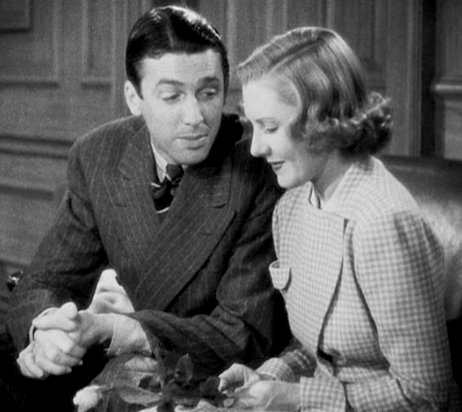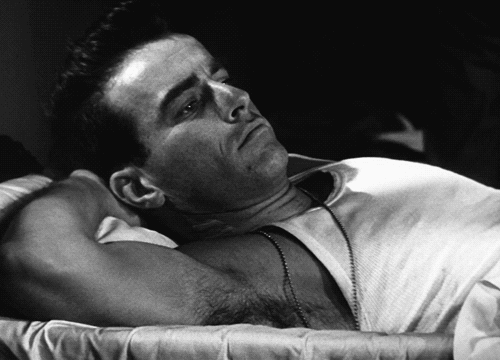The Best Picture winners of 1938 and 1953, which were based on hit plays and best selling novels respectively, have moved to the stage. Let's take a look...
 Annaleigh Ashford dances up a comic storm in "You Can't Take It With You"
Annaleigh Ashford dances up a comic storm in "You Can't Take It With You"
YOU CAN'T TAKE IT WITH YOU
For this Broadway revival of the classic 30s comedy, famously moviefied by Frank Capra back in the day, they've gone all star: James Earl Jones plays the tax-avoiding follow-your-dreams grandfather, Broadway vet and A+ comic actress Christine Nielsen (recently Tony nominated for Vanya & Sonia & Masha & Spike) is the easily distracted mother of a large brood, Rose Byrne her gorgeous daughter (essentially the 'Marilyn Munster' of this band of eccentrics), Fran Krantz from Dollhouse and Cabin in the Woods her rich would-be fiancee and Annaleigh Ashford, who has been on such a brilliant role these past couple of years with her ex-hooker lesbian receptionist on Masters of Sex and as a factory girl in Broadway's Kinky Boots, is the dance-crazed busybody.
 If you've boned up on your 1930s Best Picture winners you'll know that those are the roles once inhabited by Lionel Barrymore, Spring Byington (Oscar-nominated), Jean Arthur, Jimmy Stewart and Ann Miller; tough acts to follow all.
If you've boned up on your 1930s Best Picture winners you'll know that those are the roles once inhabited by Lionel Barrymore, Spring Byington (Oscar-nominated), Jean Arthur, Jimmy Stewart and Ann Miller; tough acts to follow all.
As it turns out the theatrical and farcical antics of this family play better on stage...
I blame that happy truth on the intermission which the film version doesn't have and its overlong and exhausting with its two plus hours of manic energy. Comedies should never ever be over two hours! (See also our discussion of Best Picture running times.)
'Best in Show' in this stage production is Annaleigh Ashford who manages to take essentially one joke (she loves to dance!) to absurd multiple-laugh comic heights through fearless commitment to both repetition and her character's endearing cluelessness. Rose Byrne and Fran Kranz, stuck with the least flashy characters, manage to capture some degree of root-for-them romantic glamour, but they're no Jimmy Stewart and Jean Arthur. To be fair: who is? They're stuck with straight man characters in a show with a dozen multiple comic relief spazzes. Scratch that. Byrne & Kranz are essentially the dramatic relief from this wack-a-doodle comedy.
I'm not sure I'd call You Can't Take It With You a must-see exactly but it's diverting fun. The poster outside the theater also promises adorable kittens and does not lie. You can actually adopt them: rotating show-kittens! Annaleigh brings a basket of them on stage each night. That said this old standard's politics remain an idealistic contradictory blur. I thought maybe I was crazy when I first saw the movie years and years ago for not understanding what it was getting at politically with its tax evasion and chaos other than the generic follow your dreams theme. A recent read of Mark Harris' second book "Five Came Back" dives a little bit into the movie's reception at the time and Capra's own politics - which were sometimes hard to read.
All of his contradictory perspectives were even more apparent in You Can't Take It With You, which he started shooting in early 1938. George S. Kaufman and Moss Hart's comedy about eccentrics of a large and chaotic New York family whose elderly patriarch has for years refused to pay an income tax allowed Capra to combine his various economic and social hobbyhorses into something approaching a unified semi-philosophy. In the film, the grandfather opposese the tax system in part because of his belief that the money he would pay is likely to be spent on armament. One of the movie's villains is a rapacious millionaire who serves as a mouthpiece for the then-popular contention that profit-obsessed tycoons would eventually manipulate the Unidted States into entering a war: "With the world going crazy," he practically cackles, "The next big movie is munitions, and [we] are going to cash in on it!... There won't be a bullet, gun, or cannon made in this country without us." Kaufman and Hart's play had also included some pointed jabs at anti-Communist paranoia, but those lines may have hit too close to home for Capra; the movie stripped them away and replaced them with a virtually indecipherable monologue that begins, "Communism, fascism, voodooism -- everyone's got 'ism' these days!... When things go a little bad... go out and get yourself an 'ism' and you're in business!" The speech then goes on to praise (but not define) "Americanism," and concludes, "Lincoln said, 'With malice toward none and charity to all.' Nowadays they say, 'Think the way I do or I'll bomb the daylights out of you.'"
Critics and the public loved the madcap homilizing of You Can't Take It With You - at least in America. Overseas, there was considerable dissent, much of it along the lines of Graham Greene's assertion that Capra "emerges as a rather muddled and sentimental idealist who feels - vaguely - that something is wrong with the social system" but cannot come up with a better solution than for Wall Street magnates to "throw everything up and play the harmonica."

Somehow this had slipped by me until very recently but they made a musical adaptation of the James Jones novel and 1953's Best Picture winner From Here To Eternity. Unfortunately I got to it late and the last Fathom event showing is actually tonight! Here's an interview with three-time Oscar winner Sir Tim Rice on the project (and other play/movie topics including The Fan and Aladdin). I'm sad that I've missed it but I'm betting there was...
1. a solo for the Clift character that starts with him blasting a trumpet in the morning.
2. a scantily clad huge belting love duet set on the beach with your Kerr & Lancaster stand-ins. (But how to emulate the passion of making out in the sand as waves wash over you on stage?)
3. gratuitous shirtlessness of the male leads. (Well, it does take place in Hawaii!)

From Here to Eternity as a big theatrical musical -- what would Monty make of it?